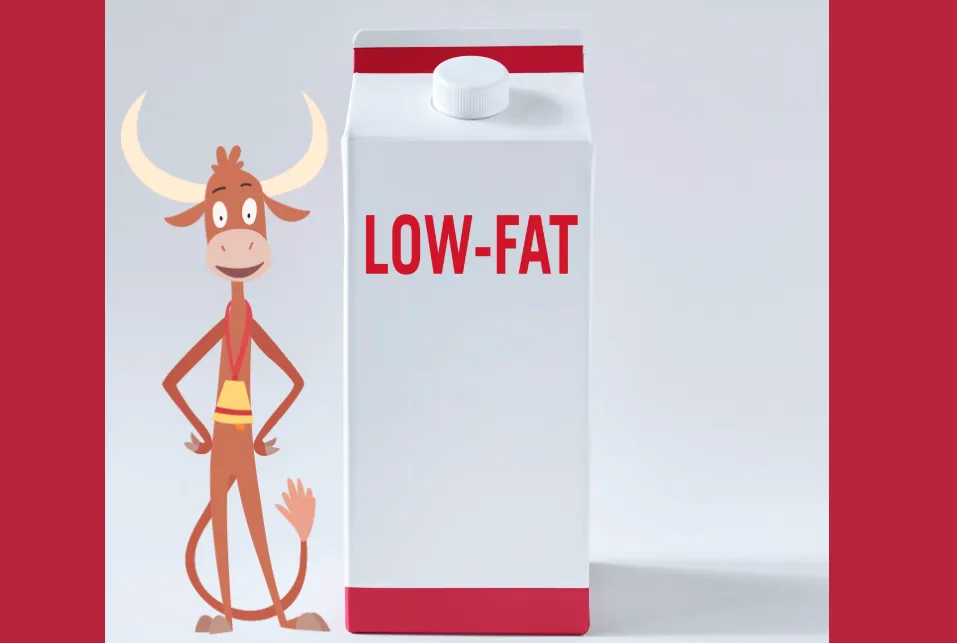
The Skinny on Low-Fat Diets and Brain Health
The Skinny on Low-Fat Diets and Brain Health
For decades, we’ve been told that fat is the enemy, that low-fat diets are the key to health and weight loss. But what if this advice is doing more harm than good? The truth is, your brain and body rely on healthy fats to function at their best. Today, we’re busting the myth that all fats are bad and diving into why healthy fats are essential for your brain, hormones, and energy levels.
The Origins of the Low-Fat Myth
The low-fat craze began in the mid-20th century when fat was blamed for rising rates of heart disease and obesity. Food manufacturers jumped on the trend, creating low-fat products loaded with sugar and artificial ingredients to compensate for lost flavor. While these products were marketed as healthier, they often left people feeling hungrier and less satisfied, leading to overeating and nutrient deficiencies.
Fast forward to today, and we now know that not all fats are created equal. Healthy fats are crucial for your brain, body, and overall health, while trans fats and highly processed oils are the true culprits behind many health problems.
Why Your Brain Craves Healthy Fats
Your brain is about 60% fat, and it depends on healthy fats to perform its many functions. Fats form the structural foundation of your brain cells, helping to maintain their flexibility and ability to communicate efficiently. Omega-3 fatty acids, in particular, are essential for brain health. These fats support cognitive function, mood regulation, and memory by reducing inflammation and promoting the growth of new brain cells.
When your diet is low in healthy fats, your brain struggles to maintain these processes, leading to symptoms like brain fog, difficulty concentrating, and even depression. Studies have shown that diets rich in omega-3s are linked to lower rates of neurodegenerative diseases like Alzheimer’s, underscoring the long-term benefits of including these fats in your diet.
Hormones and Fat: The Unsung Hero
Healthy fats are the building blocks of hormones. Without enough dietary fat, your body can’t produce hormones like estrogen, testosterone, and cortisol, which regulate everything from energy levels to stress responses. Low-fat diets can disrupt this delicate balance, leading to symptoms like fatigue, mood swings, and weight gain.
For women, fats are particularly important for hormone health and reproductive function. Cholesterol, often vilified, is actually a precursor to many hormones. Cutting fat too drastically can result in irregular menstrual cycles, fertility issues, and hormonal imbalances.
Fat as a Steady Source of Energy
Fats are the most calorie-dense macronutrient, providing a slow, sustained release of energy. Unlike carbohydrates, which can cause rapid spikes and crashes in blood sugar, fats keep you feeling full and energized for longer. This makes healthy fats a key component of diets designed for endurance, focus, and stable energy throughout the day.
Low-fat diets, by contrast, often rely heavily on carbs to fill the calorie gap. This can lead to energy swings, cravings, and overeating. Incorporating healthy fats like avocados, nuts, and olive oil helps stabilize your metabolism and keeps hunger in check.
The Different Types of Fats: Good vs. Bad
Not all fats are created equal, and it’s important to understand the differences. Healthy fats are found in natural, unprocessed foods, while unhealthy fats are typically found in processed or fried foods.
Healthy Fats: These include monounsaturated and polyunsaturated fats found in foods like avocados, fatty fish, nuts, seeds, and olive oil. Omega-3 fatty acids, in particular, are essential for reducing inflammation and supporting brain and heart health.
Unhealthy Fats: Trans fats and highly processed oils, like those found in fried foods and packaged snacks, are inflammatory and contribute to heart disease and other chronic conditions.
Busting the Cholesterol Myth
One of the biggest misconceptions about fat is that it automatically raises cholesterol levels and causes heart disease. In reality, dietary cholesterol has little impact on blood cholesterol for most people. Healthy fats can actually improve cholesterol profiles by raising HDL (the "good" cholesterol) and lowering LDL (the "bad" cholesterol) particles.
How to Incorporate Healthy Fats into Your Diet
Adding more healthy fats to your meals doesn’t have to be complicated. Small changes can make a big difference in how you feel and function.
Start by swapping out processed oils for heart-healthy options like olive oil or avocado oil.
Include fatty fish like salmon or mackerel in your weekly meals to boost omega-3 intake.
Snack on nuts or seeds instead of low-fat, sugar-laden options.
Don’t shy away from whole foods like avocados, full-fat yogurt, or eggs—these are nutrient-dense options that support your overall health.
Testing Your Cholesterol
You may have taken blood tests to look at your cholesterol levels, but do you really know what the results mean? If you are interested in looking at your results through a functional lens to give you real answers about what they mean, then check out my free workshop to learn more about it.

Final Thoughts
Low-fat diets may have dominated the health world for years, but the evidence is clear: healthy fats are essential for your brain, body, and overall well-being. From supporting cognitive function and hormone balance to providing steady energy, fats play a critical role in your health. It’s time to ditch the fear of fat and embrace the nutrient-dense options that truly nourish your body.
Healing starts at the cell - Download my free Cell Health Checklist
Healing starts at the cell. If you are curious about the health status of your cell and whether or not you may be experiencing inflammation, click here for my free Cell Health Checklist.
